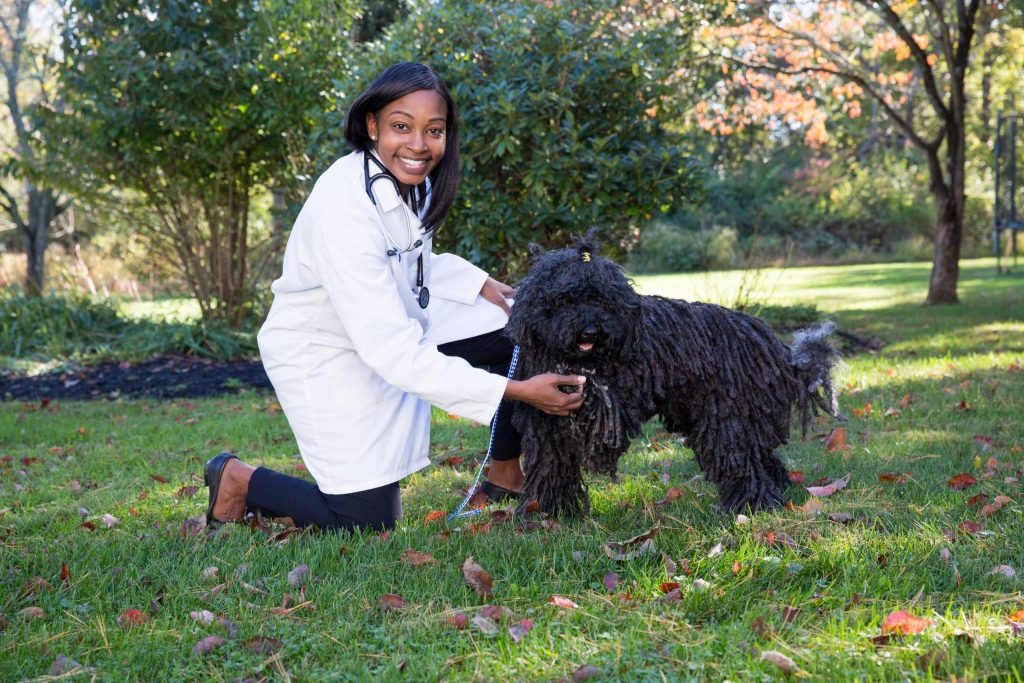Veterinary Oncology Services versus primary pet care for cancer patients
Wiki Article
The Value of Very Early Discovery: Insights From a Veterinary Oncologist
Early detection of cancer in pets is a vital topic for pet owners and vet experts alike. Veterinary oncologists highlight the significance of identifying refined signs that might indicate major health and wellness concerns. Usual signs and symptoms usually go undetected till they escalate. Understanding these very early indication and innovations in diagnostic strategies can make a considerable difference. What steps can family pet proprietors require to improve their pet dogs' opportunities of very early diagnosis and far better therapy outcomes?Comprehending Cancer Cells in Family Pets: Typical Kinds and Symptoms
While numerous family pet owners may not recognize it, cancer is a considerable wellness problem affecting animals, similar to it carries out in people. Typical sorts of cancer cells in animals include lymphoma, mast cell tumors, osteosarcoma, and mammary tumors. These hatreds can materialize in numerous methods, depending upon their area and kind. Symptoms often consist of unexplained weight management, relentless throwing up, changes in hunger, or uncommon lumps and bumps. Family pets may additionally exhibit sleepiness, difficulty breathing, or unwillingness to workout, which can suggest underlying health and wellness problems. Early indications can be refined, making it essential for family pet owners to be observant of their pet dogs' actions and physical condition. Understanding these typical kinds and associated signs can equip proprietors to seek veterinary care without delay, possibly causing earlier diagnosis and therapy choices. Identifying the signs of cancer cells in family pets is an essential action in the direction of boosting their health and lifestyle.The Function of Vet Oncologists in Early Discovery
Veterinary oncologists play a vital role in the very early detection of cancer in family pets, as their specialized training furnishes them with the skills necessary to determine refined indicators that may be neglected by general practitioners. They use a combination of medical proficiency and progressed diagnostic devices to examine clients thoroughly - Pet Cancer Surgery. By identifying very early symptoms and risk variables, oncologists can guide family pet owners toward prompt interventions, boosting the possibilities of successful therapyFurthermore, veterinary oncologists usually work together with family doctors to develop screening procedures tailored to certain types or age teams, boosting the performance of very early detection efforts. They educate family pet owners on the relevance of regular examinations and understanding of changes in actions or physical problem. Through these aggressive actions, veterinary oncologists substantially add to boosting outcomes for animals identified with cancer, highlighting the critical nature of their duty in vet healthcare.
Advancements in Diagnostic Techniques for Family Pet Cancer
Innovations in analysis techniques have substantially boosted the capability to spot cancer cells in pet dogs at earlier phases. Techniques such as advanced imaging, consisting of MRI and CT scans, give comprehensive inner sights, allowing veterinarians to identify lumps that may not be palpable. Furthermore, the development of minimally intrusive treatments, such as great needle aspirates and biopsies, enables accurate sampling of tissues for histopathological evaluation with decreased tension for the animal.Arising molecular diagnostics, consisting of genetic testing and biomarker recognition, are changing the landscape of veterinary oncology. These techniques can recognize specific cancer types and predict actions to therapy, assisting in individualized care strategies. Developments in lab strategies, such as liquid biopsies, are starting to provide non-invasive alternatives for checking lump progression and treatment efficiency. Collectively, these advancements represent a substantial leap forward in vet medication, highlighting the critical function of early detection in boosting results for pet dogs diagnosed with cancer cells.
Just How Pet Owners Can Acknowledge Warning Signs
Exactly how can family pet proprietors end up being vigilant in identifying prospective warning indicators of cancer? Understanding of physical and behavioral adjustments in family pets is important. Common signs consist of uncommon sleepiness, loss of cravings, or abrupt weight adjustments. Family pet owners must likewise take note of persistent vomiting or diarrhea, which might signal underlying concerns.Changes in the skin, such as lumps, bumps, or sores that do not recover, call for instant vet attention. Furthermore, proprietors ought to note modifications in drinking habits, increased peeing, or difficulty in breathing. Unexplained limping or pain might likewise be signs of even more significant conditions.
Regular veterinary exams can help determine these indication early. By maintaining a close observation of their pet dogs' health and wellness and actions, owners can play a key role in early detection, possibly causing far better end results should cancer be identified. Identifying these indicators might considerably influence a pet dog's lifestyle.
The Effect of Very Early Detection on Therapy Results
Early discovery of cancer in pets plays a necessary function in establishing treatment results, as it usually permits a bigger range of restorative options. When cancer is diagnosed in its very early stages, vets can carry out much less intrusive treatments, boosting the chance of successful intervention. Early-stage cancers might likewise react better to chemotherapy or radiation, leading to boosted survival rates and general high quality of life for the family pet.Additionally, prompt diagnosis promotes a much more tailored treatment strategy, straightening with the specific demands of the pet. This can include customized drug routines or medical interventions that are less hostile. Alternatively, late-stage detection often results in minimal alternatives, extra aggressive therapies, and poorer diagnoses. As a result, the relevance of early detection can not be overemphasized; it essentially alters the trajectory of therapy, making it crucial for pet dog proprietors to continue to be attentive for any signs of ailment in their cherished companions.
Often Asked Concerns

Just How Can Diet Influence Cancer Threat in Pets?
Diet substantially influences cancer risk in pets, as certain nutrients and food kinds can either hinder or promote tumor growth. A balanced, nutrient-rich diet regimen may assist decrease the likelihood of establishing cancer in animals.
Are Specific Breeds More Prone to Cancer cells?
Certain pet types, such as Golden Retrievers and Fighters, exhibit higher cancer cells vulnerability because of genetic proneness. Similarly, some feline breeds additionally show increased cancer dangers, highlighting the relevance of breed-specific health and wellness recognition see here now amongst pet proprietors.What Are the Costs Connected With Very Early Cancer Cells Detection?
The prices linked with early cancer cells discovery can vary substantially, encompassing analysis examinations, consultations, and prospective therapies - Board Certified Veterinary Oncologist. Buying these solutions typically results in much better wellness results, ultimately minimizing a lot more comprehensive future clinical costsCan Vaccinations Avoid Cancer in Family Pets?


Vaccines might decrease the risk of specific cancers in animals, especially those connected to viral infections. Their efficiency differs, and pet dog owners must seek advice from veterinarians for customized guidance concerning vaccination and cancer cells avoidance approaches.
Exactly How Typically Should Family Pets Be Evaluated for Cancer?
Animals ought to typically be screened for cancer cells every year, particularly as they age or if they display threat variables. Regular veterinary exams can assist identify potential problems early, enhancing therapy results and general health and wellness monitoring.Early detection of cancer in pets is a crucial subject for pet proprietors and vet professionals alike. Early indications can be refined, making it crucial for pet dog owners to be watchful of their pets' habits and physical condition. Veterinary oncologists play a vital duty in the early discovery of cancer in pet dogs, as their specialized training equips them with the abilities necessary to recognize refined indicators that might be neglected by general professionals. By preserving a close observation of their pet dogs' wellness and habits, proprietors can play an essential function in very early discovery, potentially leading to better outcomes ought to cancer be identified. Early detection click for more of cancer in family pets plays an important duty in determining therapy outcomes, as it often enables for a news wider array of healing choices.
Report this wiki page